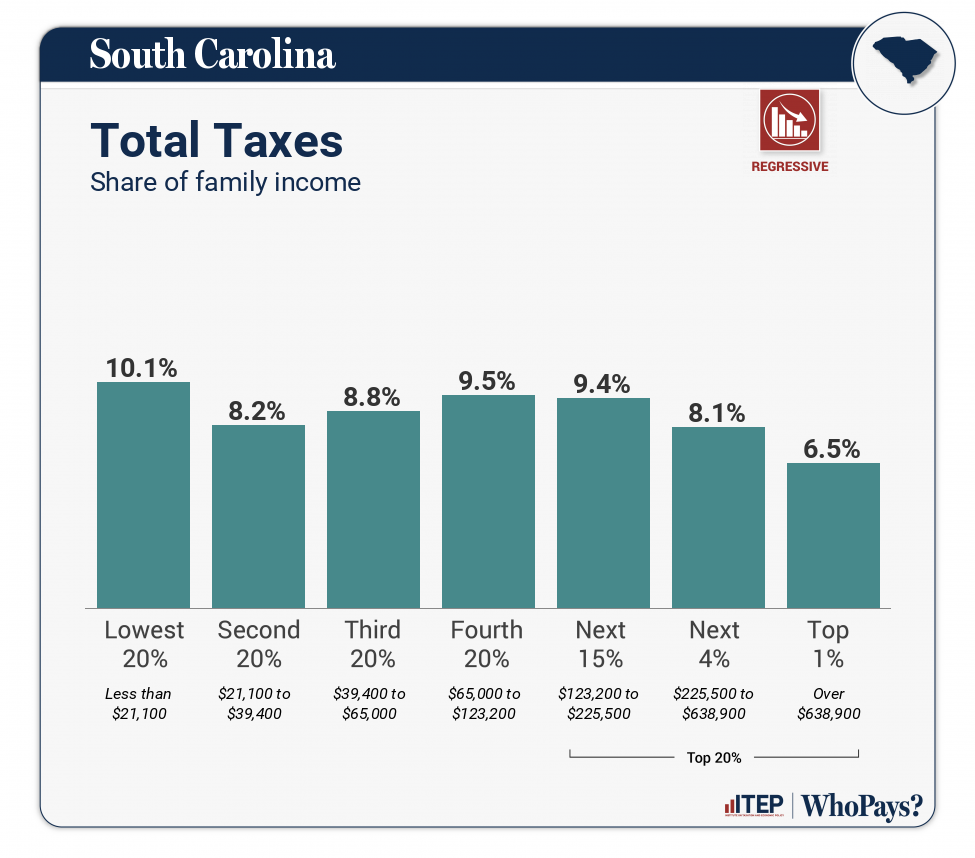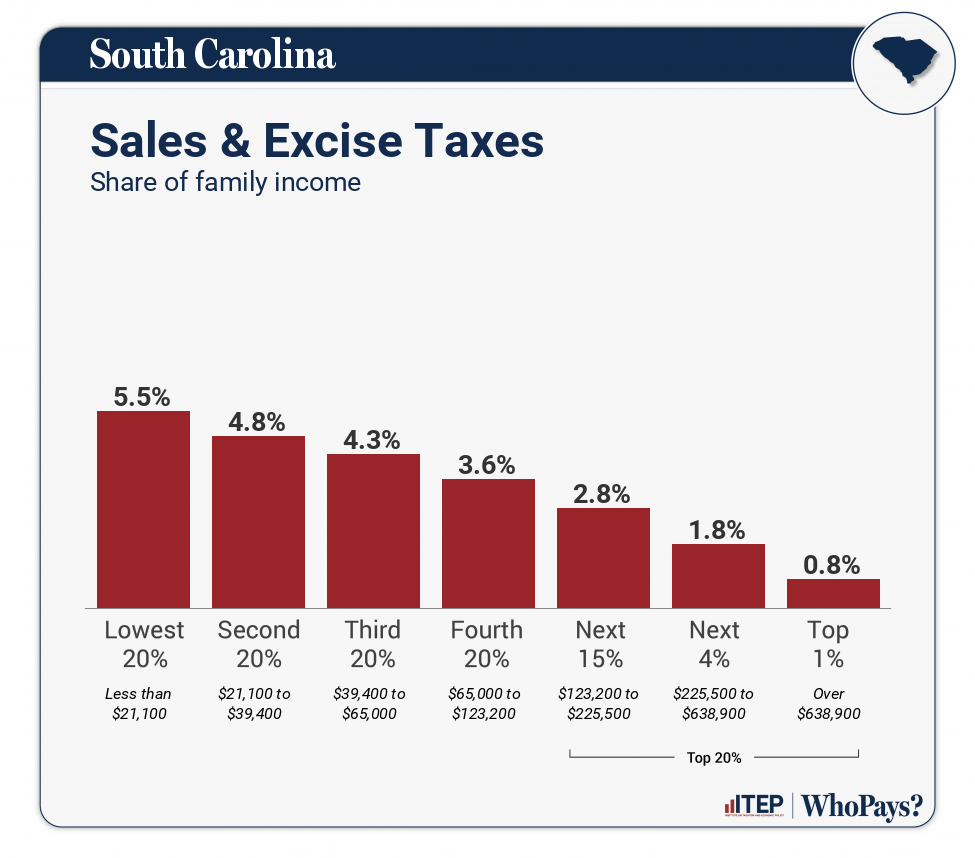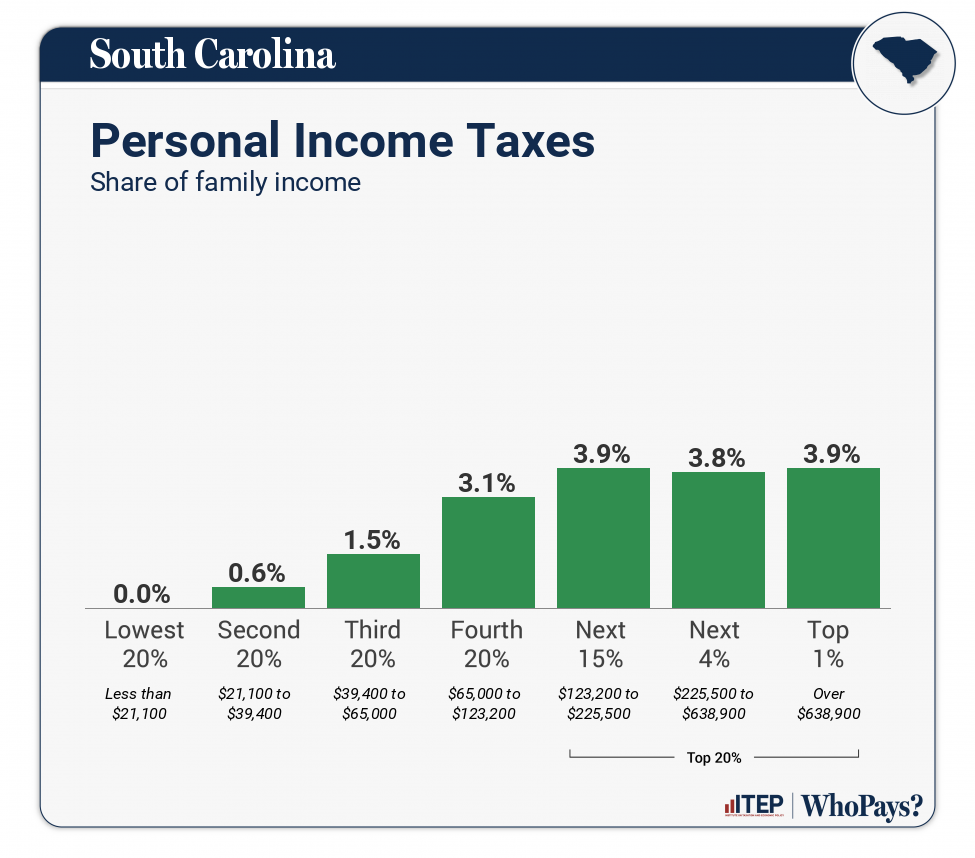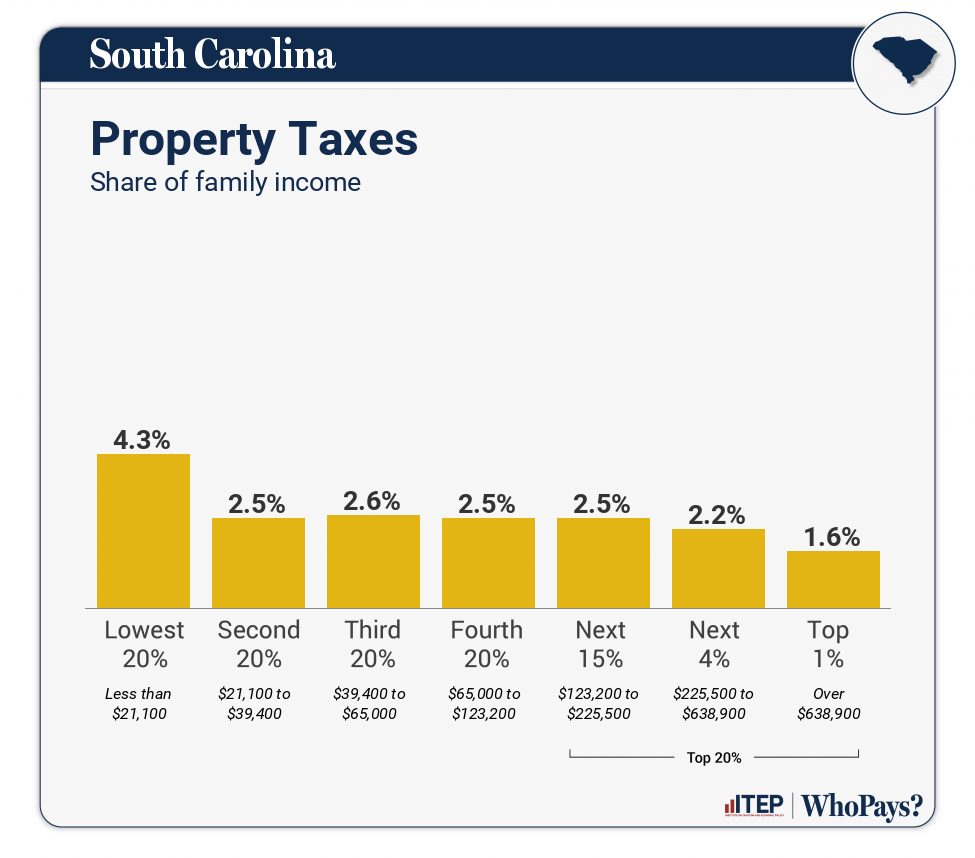
South Carolina
Download PDF
State and local tax shares of family income
| Top 20% | |||||||
| Income Group | Lowest 20% | Second 20% | Middle 20% | Fourth 20% | Next 15% | Next 4% | Top 1% |
| Income Range | Less than $21,100 | $21,100 to $39,400 | $39,400 to $65,000 | $65,000 to $123,200 | $123,200 to $225,500 | $225,500 to $638,900 | Over $638,900 |
| Average Income in Group | $12,400 | $30,900 | $51,600 | $91,400 | $155,200 | $338,000 | $1,496,500 |
| Sales & Excise Taxes | 5.5% | 4.8% | 4.3% | 3.6% | 2.8% | 1.8% | 0.8% |
| General Sales–Individuals | 3.3% | 3.1% | 2.9% | 2.4% | 1.9% | 1.1% | 0.4% |
| Other Sales & Excise–Ind | 1.4% | 1% | 0.7% | 0.6% | 0.4% | 0.2% | 0.1% |
| Sales & Excise–Business | 0.8% | 0.8% | 0.7% | 0.6% | 0.6% | 0.5% | 0.3% |
| Property Taxes | 4.3% | 2.5% | 2.6% | 2.5% | 2.5% | 2.2% | 1.6% |
| Home, Rent, Car–Individuals | 3.7% | 1.9% | 2.1% | 1.9% | 1.8% | 1.4% | 0.5% |
| Other Property Taxes | 0.6% | 0.6% | 0.6% | 0.6% | 0.6% | 0.8% | 1.1% |
| Income Taxes | 0.1% | 0.7% | 1.6% | 3.2% | 3.9% | 3.9% | 4% |
| Personal Income Taxes | 0% | 0.6% | 1.5% | 3.1% | 3.9% | 3.8% | 3.9% |
| Corporate Income Taxes | 0% | 0% | 0% | 0% | 0% | 0% | 0.1% |
| Other Taxes | 0.2% | 0.2% | 0.2% | 0.2% | 0.2% | 0.2% | 0.1% |
| TOTAL TAXES | 10.1% | 8.2% | 8.8% | 9.5% | 9.4% | 8.1% | 6.5% |
| Individual figures may not sum to totals due to rounding. | |||||||
ITEP Tax Inequality Index
ITEP’s Tax Inequality Index measures the effects of each state’s tax system on income inequality. According to this measure, South Carolina has the 34th most regressive state and local tax system in the country. Income disparities are larger in South Carolina after state and local taxes are collected than before. (See Appendix B for state-by-state rankings and the report methodology for additional detail.)
Tax features driving the data in South Carolina
|
Graduated personal income tax structure, though top rate kicks in at $17,350 so a large share of families face top rate
Provides an Earned Income Tax Credit (EITC)
Sales tax base excludes groceries
Levies a business franchise tax
|
|
|
Provides an income tax deduction equal to 44 percent of capital gains income
No refundable income tax credits to offset sales, excise, and property taxes
Earned Income Tax Credit (EITC) is nonrefundable and limited in its reach
Real estate transfer tax does not include higher rate on high-value sales
Allows lower personal income tax rates for pass-through business income
Does not use combined reporting as part of its corporate income tax
Does not levy a tax on estates or inheritances
|








